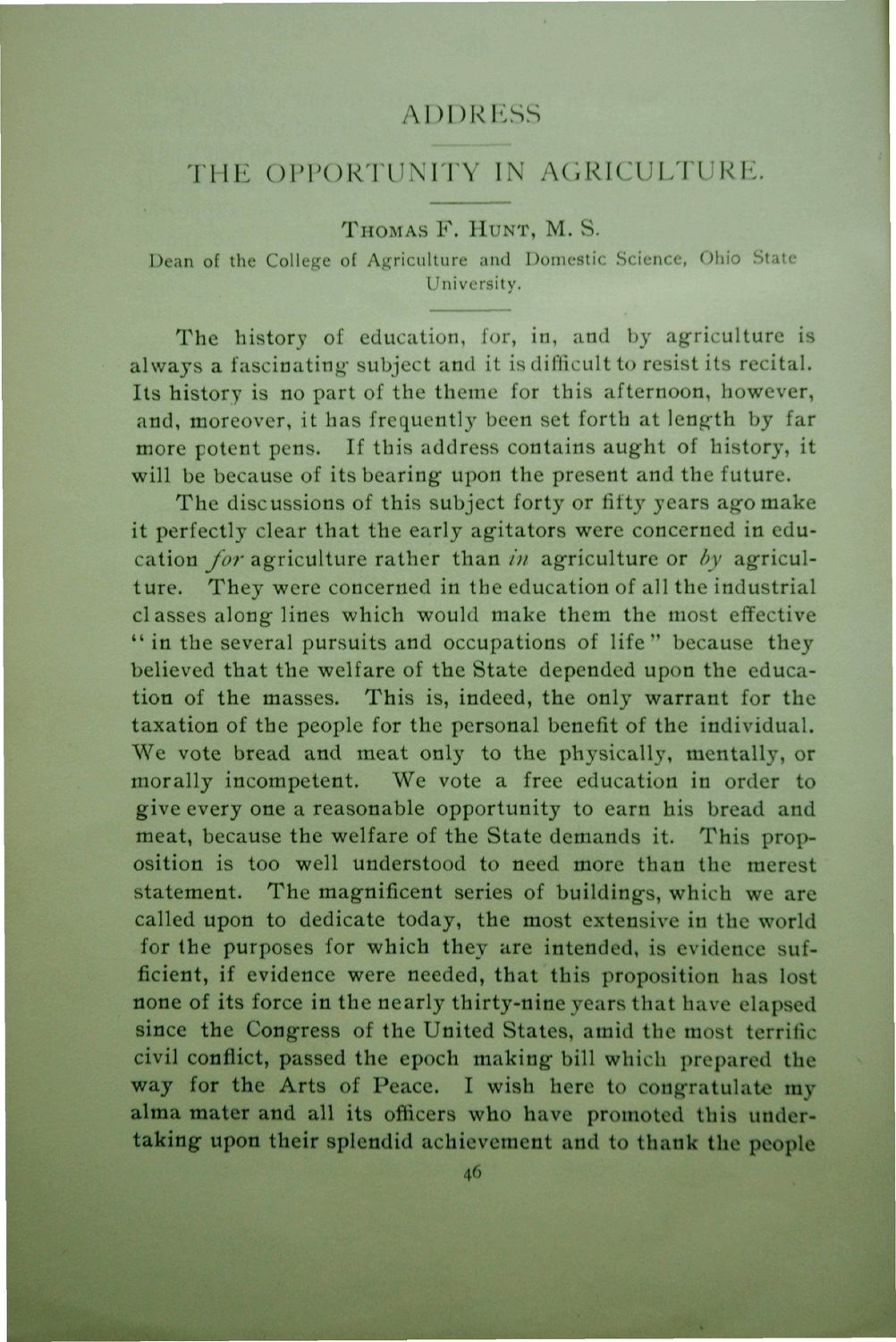| |
| |
Caption: Dedication - Ag Building
This is a reduced-resolution page image for fast online browsing.

EXTRACTED TEXT FROM PAGE:
ADDRESS THE OPPORTUNITY IN AGRICULTURE. THOMAS F. HUNT, M. S. Dean of the College of Agriculture and Domestic Science, Ohio State University. The history of education, for, in, and by agriculture is always a fascinating* subject and it is difficult to resist its recital. Its history is no part of the theme for this afternoon, however, and, moreover, it has frequently been set forth at length by far more potent pens. If this address contains aught of history, it will be because of its bearing upon the present and the future. The discussions of this subject forty or fifty years ago make it perfectly clear that the early agitators were concerned in education for agriculture rather than in agriculture or by agriculture. They were concerned in the education of all the industrial classes along lines which would make them the most effective " in the several pursuits and occupations of life " because they believed that the welfare of the State depended upon the education of the masses. This is, indeed, the only warrant for the taxation of the people for the personal benefit of the individual. We vote bread and meat only to the physically, mentally, or morally incompetent. We vote a free education in order to give every one a reasonable opportunity to earn his bread and meat, because the welfare of the State demands it. This proposition is too well understood to need more than the merest statement. The magnificent series of buildings, which we are called upon to dedicate today, the most extensive in the world for the purposes for which they are intended, is evidence sufficient, if evidence were needed, that this proposition has lost none of its force in the nearly thirty-nine years that have elapsed since the Congress of the United States, amid the most terrific civil conflict, passed the epoch making bill which prepared the way for the Arts of Peace. I wish here to congratulate my alma mater and all its officers who have promoted this undertaking upon their splendid achievement and to thank the people 46
| |